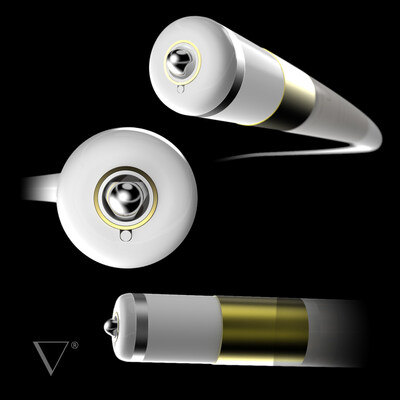SHINE Medical Technologies LLC and Phoenix LLC today announced that the companies have completed a merger under which Phoenix has become a wholly owned subsidiary of SHINE.
SHINE is a next-generation nuclear technology company focused on unlocking the power of fusion technologies to benefit the planet and humankind. The company’s goal is to deliver on the long-term promise of clean fusion energy by advancing fusion technology starting with the commercialization of medical isotopes. Phoenix designs and manufactures the world’s strongest steady-state fusion neutron generators used for advanced industrial imaging and other applications for improving safety and quality in the aerospace, defense, medical and energy sectors.

The combined company represents the first two phases of the long-term vision of Greg Piefer, the founder of both companies, for producing clean energy from fusion (see “SHINE’s Four-Phase Progression to Clean Energy Production” below). The goal of each phase of SHINE’s approach is to build additional capacity and capability, and deepen scientific understanding of fusion technology as it progresses to clean fusion energy production. Each step through the four phases is expected to provide further proof of the technology’s robustness, a foundation for ongoing innovation in the next phase and the creation of value for the company, its customers, and shareholders.
“SHINE and Phoenix have shared a common long-term vision and operated in close collaboration during the past 11 years, but it’s always been inefficient to operate as separate companies,” said Greg Piefer, CEO of SHINE. “Coming together will enable us to advance fusion technology more quickly by aligning interests and combining complementary core competencies. Through the four phases, we are taking a deliberate approach to building a company that can ultimately deliver cost-effective, clean fusion energy to billions, while serving important near-term market needs like advanced industrial imaging and medical isotopes, along the way.” For a video of additional comments from Greg Piefer, click here (:46 broadcast-quality available for the media).
Phoenix has developed a strong track record of commercialization and revenue generation by applying its fusion-based technology to applications such as advanced industrial imaging, which can image modern materials in great detail, addressing quality assurance and safety needs in the aerospace, defense, energy, and other industries. These applications are part of Phase 1 of the four-phase approach.
The second phase of the approach involves applications of nuclear fusion to replace nuclear reactors used in the production of life-saving medical isotopes for diagnostic imaging, like molybdenum-99 (Mo-99), and with potential use as cancer therapeutics like lutetium-177 (Lu-177). This month, SHINE kicked off Phase 2 commercialization when it began producing Lu-177. In 2022, SHINE expects to commence production of up to 20 million doses of Mo-99 per year in its fusion-powered production facility in Janesville, Wis. The facility is expected to be the world’s largest-capacity medical isotope production plant.
“This merger is a natural evolution of our strong existing partnership with SHINE, rooted in our common origin and shared mission,” said Evan Sengbusch, general manager of SHINE’s Phoenix division. “Phoenix’s track record of successfully deploying our core neutron generation technology across multiple demanding market sectors has provided important commercial validation and risk reduction for critical technologies that underpin execution in Phase 2. We are excited to join with SHINE and leverage our complementary nuclear capabilities to advance towards clean fusion energy production.” For a video of additional comments from Evan Sengbusch, click here (1:24 broadcast-quality available for the media).
Phoenix was founded in 2005 by Piefer to develop and commercialize a unique technology that generated neutrons through fusion. He spun SHINE out of Phoenix in 2010 to apply that technology to medical isotope production and other applications through the four-phase approach.
Evercore Group L.L.C. served as exclusive financial advisor to SHINE. Foley & Lardner served as lead legal counsel to SHINE. SVB Leerink served as exclusive financial advisor to Phoenix. Godfrey & Kahn S.C. served as lead legal counsel to Phoenix.
SHINE’s Four-Phase Progression to Clean Energy Production
- Phase 1: Advanced industrial imaging – uses neutrons for detailed imaging to improve the quality and safety of products in the aerospace, defense, energy, and other industries.
- Phase 2: Medical isotopes (small-scale transmutation) – uses fusion technology to produce medical isotopes that diagnose and treat heart disease, cancer and a wide range of diseases
- Phase 3: Nuclear waste recycling (large-scale transmutation) – scale up of phase 2 processing and fusion technology to recycle nuclear waste
- Phase 4: Fusion Energy – establishes nuclear fusion as a technically and commercially viable global source of energy


